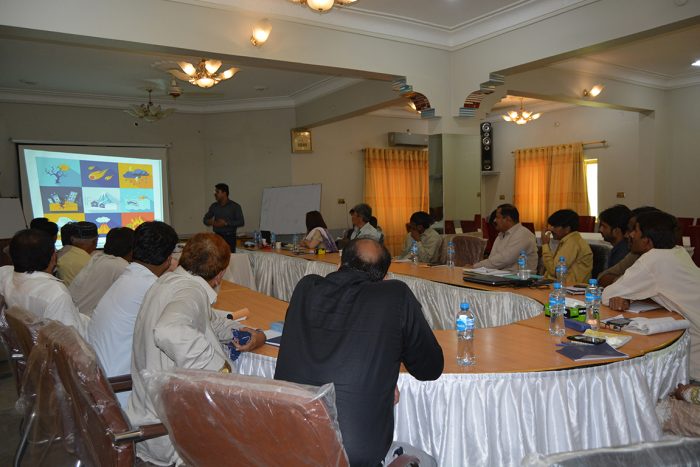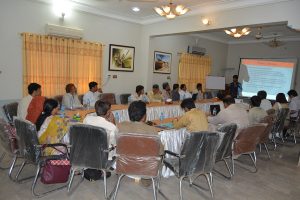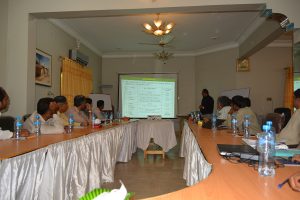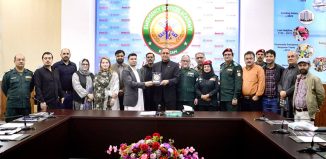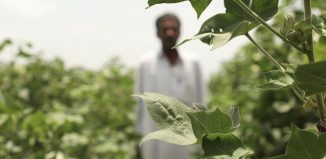Partnering to Improve Drought-Related Disaster Resilience
Water scarcity is one of the main challenges for communities in the Thar Desert, which also includes almost half of Umerkot district. During field operations, Community World Service Asia and partners observed significant negative impact on the lives and well-being of the local communities from chronic water shortage and drought, putting these communities at high risk. Their main sources of income are agriculture and livestock, which are totally dependent on the availability of water. Owing to these issues, Community World Service Asia is partnering with Community World Service Japan (CWS Japan) and Japan Conservation Engineers & Company Limited (JCE) to implement an emergencies project to enhance drought-related disaster resilience by improving access to water and supporting drought-resilient agricultural practices in Umerkot district.
Under this project, the partners organized a one-day workshop on August 30, 2019, to determine how various stakeholders within government and non-government organizations can better coordinate to resolve these issues. Key questions to explore included how to determine the best locations for well digging; how technologies can be used to identify potential areas for aquafers; and how communities and relevant government departments can support the maintenance of these resources to make them more sustainable.
The training drew an estimated 25 participants from government departments such as the Pakistan Council of Research in Water Resources (PCRWR), Arid Zone Agriculture Research Institute (AZRI), Extension Department, Pakistan Meteorological Department, Sindh University of Tando Jam, Provincial Disaster Management Authority (PDMA) Sindh, Public Health Engineering Department (PHED), and Water Management Department as well as staff from Community World Service Asia.
Mir Hassan from Community World Service Asia started the workshop with an overview of the project and its stakeholders. During the training, the participating government agencies were given a chance to share about their roles, responsibilities and achievements in the field of disaster management to highlight best practices and find synergies in support of the at-risk communities. Representatives from PDMA Sindh, Sindh University of Tando Jam and Pakistan Metrological Department began by presenting their work and areas of expertise.
Then the lead trainer, Takeshi Komino of CWS Japan, shared the findings of the field visit with the workshop participants and discussed where collaboration is required to address the water-related issues of the communities. He also shared how potential areas for digging wells can be determined in cheaper and more appropriate ways using technology and how Electrical Resistivity Surveys can be done at specific locations to get clean water.
Then the representative from PDMA Sindh, Ajay Kumar, shared about their mandate and the response they have extended to the drought-affected communities to date. The representative of the Sindh University of Tando Jam, Arshad Narejo, followed by sharing about their work in the field of Disaster Risk Management. Then a representative from the Pakistan Meteorological Department, Abid Laghari, shared about their research and existing resources and how one can efficiently utilize meteorological data to minimize a community’s vulnerability to drought and other disasters.
The workshop was concluded with a note of thanks by Komino for the participants’ collaboration and expertise in service to the communities affected by the drought.





